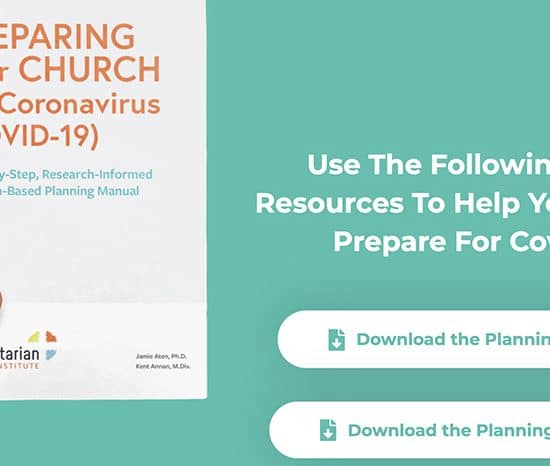By Bill Webb
Word&Way Editor
Like most addictions, compulsive gambling usually has more than one victim. Take the example of a 16-year-old named Jerry. The picture he painted of his own experience as he began treatment is common among young people who struggle with problem gambling.
Jerry started betting on games in almost every sport and made good money in the beginning. He secured a bookie; then he discovered Internet gambling. He began staying up all night gambling and had problems getting to school.
the beginning. He secured a bookie; then he discovered Internet gambling. He began staying up all night gambling and had problems getting to school.
When Jerry started losing big, he gambled more in an attempt to recover his losses. At first, he borrowed from his parents to pay his own credit cards.
Then, without their knowledge, he began using their credit-card information and charging his debts to their accounts.
For awhile, he was able to intercept their escalating credit card statements in the mail.
“When the credit card companies started calling the house, I was done,” he told his counselor. “I couldn’t always get to the phone first even if I tried. When the truth came out, the family was thousands of dollars in debt.
“That night, I tried to kill myself. I couldn’t stand hurting my parents like that.”
That’s when this teenage gambling addict wound up in counseling to try to reclaim his young life.
Professionals who try to help young people and adults who have fallen victim to gambling differentiate between pathological, or compulsive, gamblers and other problem gamblers.
The National Council on Problem Gambling Web site — www.ncpgambling.org — offers a prime online resource for information on problem gambling. The council Web site describes the difference this way:
“Problem gambling is gambling behavior which causes disruptions in any major area of life: psychological, physical, social or vocational. The term ‘problem gambling’ includes, but is not limited to, the condition known as ‘pathological,’ or ‘compulsive’ gambling, a progressive addiction characterized by increasing preoccupation with gambling, a need to bet more money more frequently, restlessness or irritability when attempting to stop, ‘chasing’ losses, and loss of control manifested by continuation of the gambling behavior in spite of mounting, serious, negative consequences.”
Resources are readily available for adult and adolescent problem gamblers, and the national council’s Web site is a good place to start.
Increasingly, colleges and universities are acknowledging the risks of problem gambling on their campuses. They make students aware of the dangers of gambling, no less than they do about the dangers of alcohol and drug use. Colleges encourage students to avoid gambling and direct problem gamblers toward resources for assistance.
 Case in point, the University of Missouri operates a Web site — gambling.missouri.edu — called “Keeping the Score” with gambling-related resources for students, parents and educators, including a self-assessment survey. The survey asks 10 pointed questions to help a person of any age quickly determine whether he is — or is in danger of becoming — a problem gambler.
Case in point, the University of Missouri operates a Web site — gambling.missouri.edu — called “Keeping the Score” with gambling-related resources for students, parents and educators, including a self-assessment survey. The survey asks 10 pointed questions to help a person of any age quickly determine whether he is — or is in danger of becoming — a problem gambler.
The University of Missouri site draws on resources available from the National Council on Problem Gambling, including frequently asked questions that describe dangers of gambling, motivations and reasons for gambling, and negative consequences associated with adolescent problem gambling.
The council site prominently lists a toll-free 24-hour confidential national hotline — 800-522-4700 — and links to additional resources available in each state, including counselor and facility directories.
In Missouri, the Missouri Department of Mental Health (www.dmh.mo.gov), through its Division of Drug and Alcohol Abuse, contracts with 20 agencies to provide free individual and group counseling, family therapy, individual and group codependency counseling, and referrals for other services. The division is the certifying body for compulsive gambling counselors.
The program served about 350 consumers in 2007.
Hospitals around the country have added programs intended to help problem gamblers through outpatient and inpatient treatments. For instance, Rhode Island Hospital’s gambling treatment program has worked with 1,000 individuals addicted to gambling in the past seven years, according to director and licensed clinical psychologist Bob Breen.
The University of Missouri site suggests 61 percent of teens who gamble do so with their parents’ permission.
Practical steps suggested to help parents protect and educate their children and their communities include:
• Examine your own attitudes and behaviors concerning gambling.
• Learn the facts about gambling — age restrictions, types of gambling and gambling terminology.
• Educate yourself on the warning signs of problem gambling and be cognizant of changes in behavior that might indicate a problem.
• Talk to your children about the risks associated with gambling.
• Be responsible role models; practice what you preach.
• Help form a collaborative network among parents, teachers, youth workers, coaches and other role models in the community to raise awareness and support healthy gambling behaviors.
• Request that schools provide education about gambling and problem gambling, just as they do for substance abuse.
Many students may be accomplished gamblers by the time they reach college, so the university site also suggests a course of action for high schools:• Establish and enforce policies regarding gambling in school for students and staff.
• Evaluate those who break school polices for potential gambling problems.
• Eliminate Las Vegas Night-type activities on prom and graduation nights, gambling-related fundraisers, and sports pools associated with staff, parent and student activities.
• Incorporate a module on gambling and problem gambling into the health and education curriculum.
• Run stories on problem gambling and/or recovering gamblers in the school newspaper.
• Use school-based drama groups to teach in an entertaining way about the dangers of gambling.
• Create or include information resources for a student health fair.
• Conduct a poster/video contest to create a positive message about gambling and problem gambling prevention.





